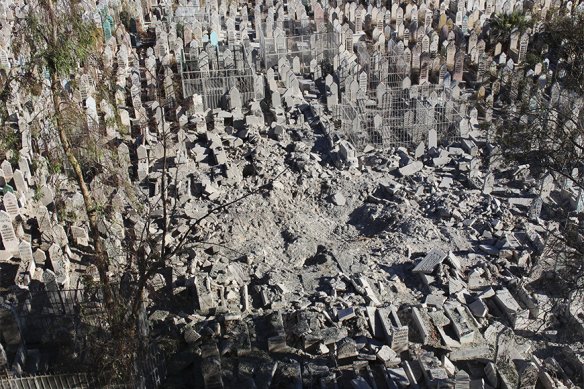Monday 14 March The South Sudanese government is allegedly planning to “temporarily” close down many of its embassies abroad due to lack of funding. The government later dismissed these claims, stating they are only reducing the number of embassy staff. Wednesday 16 March The SPLM (IO) announced 23 of their top generals are expected to… Read more »
Is The War on Drugs a Humanitarian Crisis?
Humanitarian actors increasingly look to frame the failure of the War on Drugs as an imperative for renewed engagement in Latin America. When leaders meet at UNGASS 2016 in April, legalization will be central in discussions, but issues of humanitarian encroachment should also be on the table.

Bricks of cocaine, a form in which it is commonly transported. Wikimedia Commons.
In Latin America, the four-decade long War on Drugs has had devastating impacts on the health, safety and wellbeing of rural communities, and imposed de facto states of siege in heavily militarized urban areas where government forces engage narco-trafficking groups. In reflecting on the legacies of disappearances, murders and displacement, the Drug Policy Alliance calls the Drug War ‘a humanitarian crisis of epic proportions’. In October 2015, the Colombian Ombudsman’s Office declared that fighting between paramilitaries over drug trade routes was causing a humanitarian crisis. Such instances reflect how the War on Drugs in Latin America has encouraged a highly militarized yet unsuccessful approach to drug control, leading to violence, displacement and human suffering throughout the region.
Futureproofing Humanitarianism for Permanent Emergencies: Unpacking the Promise of Cooperation
 Despite the strong growth of the humanitarian sector, there is an increasing operational and financial deficit in the capacity of governments and humanitarian organizations to respond. This has led to calls for changes in the way such crises are understood and managed. As humanitarians grapple with what is increasingly imagined as a future of permanent emergencies, the promise of cooperation has taken center stage as a way of dealing with an uncertain future. Humanitarianism has a long history of trying to improve itself incrementally through best practice examples, ever more fine-grained standards, and reforms. As humanitarian actors undertake periodic renewal projects to look and feel better and be seen as more credible and more legitimate, talk of the need for a paradigm shift has become an institutionalized feature of contemporary humanitarianism. Presently, the focus is on the ability of humanitarianism to shift into a modus operandi of continuous crisis management.
Despite the strong growth of the humanitarian sector, there is an increasing operational and financial deficit in the capacity of governments and humanitarian organizations to respond. This has led to calls for changes in the way such crises are understood and managed. As humanitarians grapple with what is increasingly imagined as a future of permanent emergencies, the promise of cooperation has taken center stage as a way of dealing with an uncertain future. Humanitarianism has a long history of trying to improve itself incrementally through best practice examples, ever more fine-grained standards, and reforms. As humanitarian actors undertake periodic renewal projects to look and feel better and be seen as more credible and more legitimate, talk of the need for a paradigm shift has become an institutionalized feature of contemporary humanitarianism. Presently, the focus is on the ability of humanitarianism to shift into a modus operandi of continuous crisis management.
This Week in South Sudan – Week 10
Tuesday 8 March The SPLA (IO) accused government force of attacking their position in Koch County in Unity State. NPR interview: “’Both Sides Are At Fault’: Susan Rice On South Sudan’s Civil War” Wednesday 9 March SPLA (IO) and government forces reportedly clashed in Ulang and Nasser county, Upper Nile State, and in Koch county,… Read more »
From the House of Cards to House of Data?
The fourth season of the Netflix series House of Cards was released worldwide on the 4th March. Which is to say, the week-end when many International Relations (IR) researchers are still rushing to finalize their conference paper for the annual convention of the International Studies Association (ISA). And, if you are reading this post, you are probably feeling guilty for having spent the weekend binge-watching the series, instead of reworking your draft one more time. I certainly do.
However, as the series teaches us again and again, we should not let guilt rule us. Better run ahead, even if this brings us into apparently uncharted territory. And I actually think that the latest season of the show can help us better understand the rise of a new mode of governing, where vast amounts of personal and behavioral data are becoming as important as more traditional ‘cards’ for playing politics.

Frank and Claire Underwood – the fictional acting president and first lady of the United States – address researchers and ISA conference goers with the only message that matters: “You should be writing” (the image above is courtesy of SAS Confidential, and it is based on the image sent by Netflix to their customers as part of its promotional campaign – http://academicssay.tumblr.com/image/140527936595)
This Week in South Sudan – Week 9
Tuesday 1 March 16 South Sudanese, including 10 aides to President Salva Kiir, have been charged with forgery and the theft of US$15 million from the presidential office. The SPLA has left a limited force in Juba in accordance with the August 2015 peace deal until a joint force with the SPLA (IO) is deployed…. Read more »
South Sudan – Uganda Relations: The Cost of Peace
The excerpt below is from a recently published article by PRIO Senior Researcher, Øystein H. Rolandsen and Doctoral Researcher, Tove Heggli Sagmo with the assistance from Fanny Nicolaisen. The article was published in ACCORD’s “Conflict Trends” magazine, Issue 4, 2015. This work was supported by Norwegian Ministry of Foreign Affairs, section for Peace and Reconciliation…. Read more »
This Week in South Sudan – Week 8
Monday 22 February The Enough Project: “South Sudan’s Central Bank Demands Accountability for U.S. Dollar Auction” VICE In Photos: “The Children Fighting For an Education in South Sudan” Tuesday 23 February International Crisis Group: “South Sudan’s Peace Needs More than Tents and Generators” South Sudan’s warring parties have agreed on a security arrangement that allows… Read more »
Is Apple the New Global Dictator?
Apple, CISCO and Microsoft rule the world, and intend to do so.

The Apple Store in New York City.
Imagine if CISCO or Apple held a general election. Billboards with potential board members smiling at us with an apple in one hand and a ballot in the other. Anyone who owns a computer or an iPad or a smartphone would be legitimate voters in the election. The ballot boxes would probably be flash and fancy. No paper involved. We would cast our ballots by pushing a button or using just our fingerprint or perhaps another way of casting a ballot that as of 2016 is not yet invented.
Big issues would be at stake in the election. We would vote for the presidency of these companies. And the composition of board. We would vote for gender balance. For composite boards that are not only white, but Afro-American, Hispanic, perhaps even Chinese. We would want the elderly to be heard, not to forget the youngsters. We would want the board to represent us. After all, the point in any election is to have our voices heard.
Far-fetched? Yes, a little. But only a little. Last week’s Apple-FBI showdown made it clear that tech-companies such as Apple are so much more than merely producers of gadgets that potentially change our lives and form our future. Read More
Ceasefire as a Fig Leaf for Carnage and Confusion

Cemetery in Aleppo hit by bombs.
Just a couple of weeks ago, Aleppo was seen as a crucial battlefield in the Syrian civil war and was compared with Sarajevo as a tragedy of intolerable proportions not only by hard-hitting journalists but also by such responsible politicians as Michael Fallon, UK Defence Secretary. Yet presently, this devastated city is portrayed as the main beneficiary of the ceasefire deal negotiated by US State Secretary John Kerry and Russian Foreign Minister Sergei Lavrov, and announced with due solemnity by President Vladimir Putin. The proposals for enforcing a no-fly zone and for punishing Russia with more sanctions appear to be overtaken by the fortunate turn of events. In fact, however, this idea may turn out to be too soft – and at the same time quite irrelevant for the US policy of containing the Syrian catastrophe. It certainly takes two for this awkward tango, but the partners have very different plans for further pirouettes.